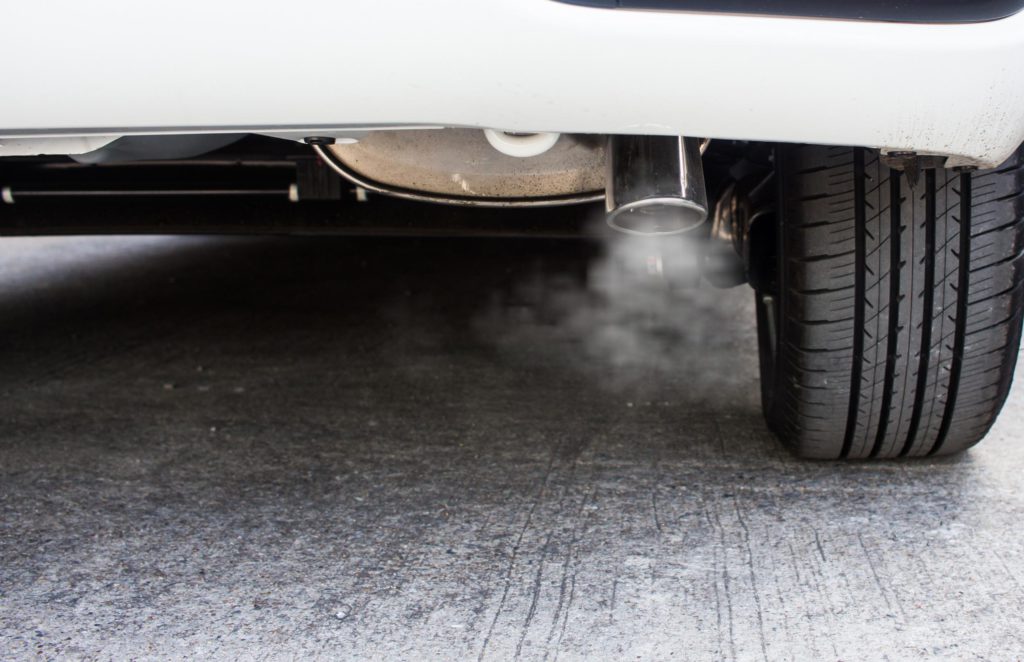Diesel vehicles emit more CO2 than petrol over their entire lifecycle
18 September 2017

18 September 2017
Over their lifetime, diesel cars produce more CO2 than their petrol counterparts, according to a new report by Brussels-based organisation Transport & Environment (T&E).
While most comparisons only take into account the driving element of a vehicle’s life, the T&E information covers the complete lifecycle, from the manufacturing process through to its scrapping. The group believes the findings call into question why governments and regulators in Europe continue to favour diesel over petrol engines, with manufacturers claiming they need them to meet strict CO2 targets.
The report suggests that from build to scrap, a diesel car emits a total of 42.65 tonnes of CO2, which is 3.65 tonnes more than that of a petrol car. Therefore, diesel is dirtier over its lifetime, meaning manufacturers should be investing more in petrol power to meet targets, according to the data.
Diesel’s higher climate impact is due to a more energy-intensive refining of the diesel fuel; more materials required in the production of heavier and more complex engines; higher emissions from the biodiesel blended in the diesel fuel; and longer mileage because fuel is cheaper in most markets. The report also suggests that consumers could end up saving, as diesel cars typically cost up to €3,000 more than petrol ones. Currently available alternatives such as petrol hybrid vehicles are priced similarly to diesel but emit around 20-25% less CO2.
Julia Poliscanova, clean vehicles manager at T&E, said: ′Dieselgate already exposed diesel cars to be the dominant cause of toxic nitrogen dioxide across European cities that is killing 68,000 Europeans annually. Contrary to industry claims, we have learned diesel cars are also worse for the climate than petrol versions and are not needed to meet car CO2 targets. Europe must now look forward and accelerate the transition to clean, electrified vehicles and consign dirty diesels to museums.’
T&E’s findings come from a comparison between a diesel travelling 182,000km in its lifetime compared to a petrol vehicle covering 175,000km, as diesel vehicles are expected to travel further before the end of their life. Fuel blending sees diesel produce 2.6 tonnes of CO2 compared to 0.8 tonnes for petrol, while in production, diesel comes in at 5.25 tonnes compared to petrol’s 5.0 tonnes. From well to wheel, diesel produces 34.8 tonnes of CO2 compared to 33.2 tonnes for petrol.
Since the Dieselgate scandal, which was uncovered two years ago, diesel has come under fire for being more polluting through nitrogen oxides (NOx) than petrol. However, for driving purposes, manufacturers have wanted to stick with the technology as it allows them to meet European CO2 regulations.
′Diesel is worth fighting for,’ Chief Executive Officer Dieter Zetsche said in July. ′We’re convinced, like the rest of the car making industry, that we’re headed toward electric mobility. Until that happens, further reductions in CO2 will be achieved through combustion engines, and here the diesel will play a significant role.’
In Germany, over five million vehicles are to be recalled for new software updates in an effort to reduce their emissions profiles and avert city bans, while a number of manufacturers have also announced scrappage schemes in order to get the most polluting vehicles off the road. However, recent emails released from the country’s Federal Motor Vehicle Authority (KBA) suggest that petrol has been as clean as diesel since 2008.
′It is time for the carmakers to take responsibility for their clean up and cash out for the local measures to tackle the urban air pollution crisis they have largely caused,’ Poliscanova concludes.